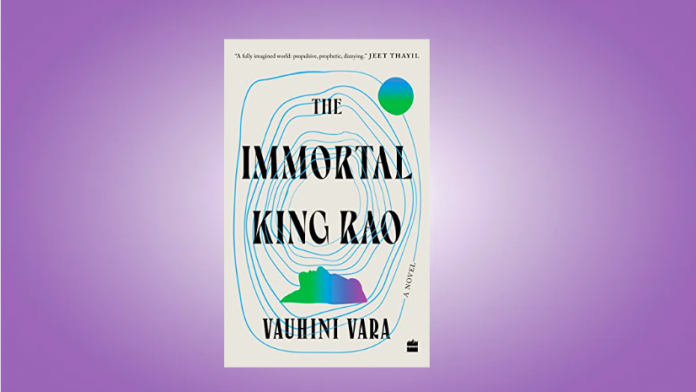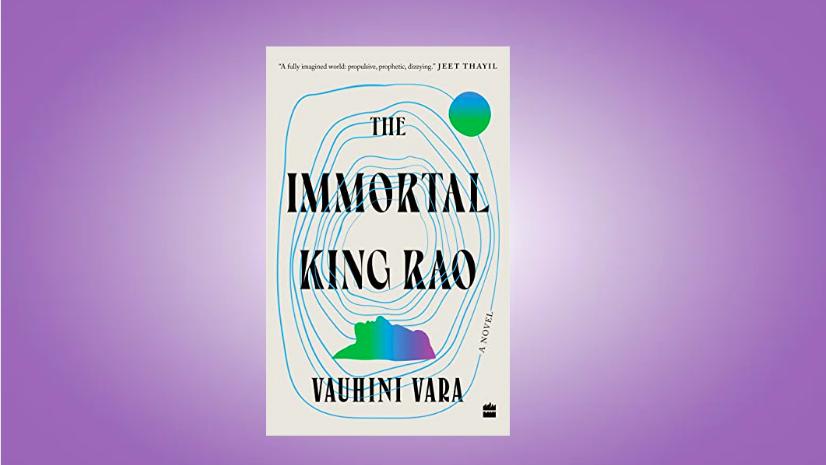The Immortal King Rao: A Novel
by Vauhini Vara
Publisher: Fourth Estate (2022)
“Science fiction is not predictive, it’s descriptive.”, Ursula K. Le Guin says in the introduction to her landmark science fiction book, ‘Left Hand of Darkness’. She asks us to think of the story not as a prediction, but as a thought experiment. A thought experiment based on what’s going on today, the reality, the present world. In the metaphors of tomorrow, like space travel, AI, etc., we are learning about today.
Ok. Let’s get to the book in hand. That is ‘Immortal King Rao’.This book has many layers. Like any book of this length has to have. Dalits and casteism, is one layer. Technology is another layer, which has many layers within it. Patriarchy, the state of women, is a layer. The caste system is pure evil. Any system that aims to separate people by the color of their skin, by the family they were born in, or other attributes that the individual doesn’t control/decide is evil.
Based on the caste you were born into, society makes opportunities available or not available to you. Dalits are at a great disadvantage in this caste system. The only surefire way to beat this is to earn a bunch of money, maybe by starting a business. Sidebar: Also read more about Dalit entrepreneurship from Chandra Bhan Prasad, by the way. And that is what the lead character’s family does, and then the lead character himself does. Till everything falls apart.
Technology is everywhere. ‘Nuff said. The thing is that this technology has made certain levers available to a select few oligarchs, politicians, capitalist overlords, technology leaders, whatever you call them. These levers are being used to extract data about you, money from you, which is in return used to research more ways to extract more data about you. Then this data about you is input to some more secret-but-not-so-secret levers that they can use to influence our thinking and in turn, our actions. I am sure they all started out with good intentions, Zuckerberg’s and such, or maybe they didn’t start out intending to use these levers for evil. But power is complicated. It corrupts and makes men evil. The lead character is no different. So of course there is resistance. And we learn about them too. We spend a good amount of the book’s length with them. The resistance.
It is a very glocal book.
This book sometimes dives into these narratives of real events, like Burma war where many Dalit soldiers made their ‘fortunes’, some successfully using it to break out of the social structure made by oppressing castes. Then there is one drawing parallels between the French Revolution and the fight against the caste system. These show the author’s expertise with nonfiction narratives. All these make this book surprisingly informative. She has her characters say things like, “Our extraordinariness [as a human race] has to do with what we have accomplished together” and many other truth bombs, survivors: nobody. It was a thoroughly enjoyable read, if that was not clear.
Le Guin continues, “Finally, when we’re done with it, we may find—if it’s a good novel—that we’re a bit different from what we were before we read it, that we have been changed a little.” I have certainly changed after this book. It is very likely that you will too.





